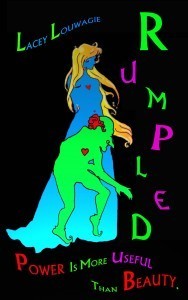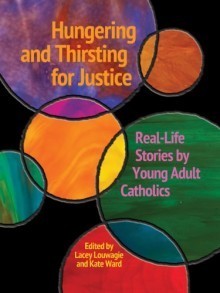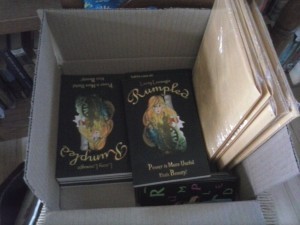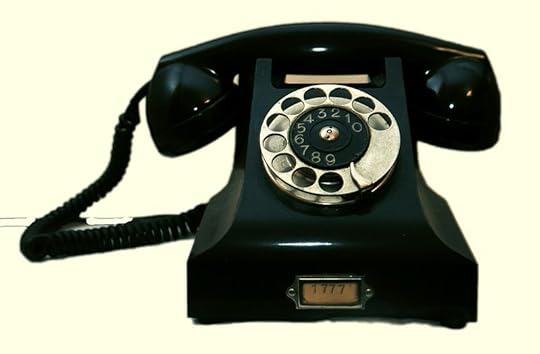Lacey Louwagie's Blog, page 15
April 21, 2014
An Anniversary and a Free Kindle Day for Rumpled
 Today is the second anniversary of the day I married the love of my life. In honor, I’m making today and tomorrow free Kindle days for Rumpled, my novella retelling the story of Rumpelstiltskin. The book is dedicated to my husband, who asked me a question that got the wheels turning toward this story. You can read more about that in my guest post for Hopelessly Devoted Biblophile’s blog.
Today is the second anniversary of the day I married the love of my life. In honor, I’m making today and tomorrow free Kindle days for Rumpled, my novella retelling the story of Rumpelstiltskin. The book is dedicated to my husband, who asked me a question that got the wheels turning toward this story. You can read more about that in my guest post for Hopelessly Devoted Biblophile’s blog.
Just a few months into my marriage, I wrote about why marriage was good for my writing. I still find all these things to be true. My husband is a software programmer who gets paid for his skills, but really wants to use them to build something of his own. This pretty much exactly mirrors my own situation, as I use my writing skills to make a living, but really cherish them for allowing me to tell stories and capture my experiences, which only brings negligible income. Still, I feel very fortunate to have found a mate who understands this balance, and my need to create for the sake of creation. Recently, he has changed his work schedule so that he “front-loads” all his hours in the first three days of the week; then he spends Thursday and Friday working on his own stuff. It makes me envious to know he’s pursuing his own projects on Thursdays and Fridays, so his new schedule has motivated me to make a change in mine, too. I like to do a little writing every day, whereas he likes to work for long stretches at a time, so I’m going to be a little more relaxed with my schedule and try to get all my paid work for the week done by Thursday. Then I can devote Friday to writing. I used to do this when I worked Saturdays, but since I stopped working weekends I lost the habit. I want to get it back, and found this kind of “front-loading” to work last week so that I only had minimal paid work on my plate on Friday.
on Thursdays and Fridays, so his new schedule has motivated me to make a change in mine, too. I like to do a little writing every day, whereas he likes to work for long stretches at a time, so I’m going to be a little more relaxed with my schedule and try to get all my paid work for the week done by Thursday. Then I can devote Friday to writing. I used to do this when I worked Saturdays, but since I stopped working weekends I lost the habit. I want to get it back, and found this kind of “front-loading” to work last week so that I only had minimal paid work on my plate on Friday.
Unfortunately, this week I’m getting a very, very late start, due to getting home late last night after we were out of town for the Easter weekend. But I won’t be too bummed if I have to do more work than I’d like on Friday, because this weekend Ivan and I are taking a combined “creative retreat/romantic getaway” at a Bed & Breakfast to celebrate our anniversary. I can hardly wait for a whole weekend to devote to both loves of my life — my husband, and my writing.
April 18, 2014
A Year in the Life, Week 51: Penultimate
On the second-to-the-last prompt in A Year in the Life, I was asked to write about something I was anticipating as my year of journaling came to a close. My anticipation was all around what my next writing projects would be!
I’m really looking forward to devoting my Fridays to writing again. Lately, squeezing in these journal entries was the best I could do, and since I started [my new job], I gave up Fridays for writing. But now that Ivan works part-time, I’m especially motivated to work on my stuff at the end of the week while he works on his. And I can do it if I focus upfront. I achieved it this week with no great hardship. All I have to do is manage to make [a little extra money] over the first four days of the week, and my writing time will be restored!
And how I love having a day to devote to writing. Fridays will be my day for working through writing development exercises–once I’m done with this, I’ll start on The Right to Write–as well as my time to do promotion: pitching my work to agents or promoting Rumpled. Balancing this with time for more process-oriented writing will allow me to run the whole gamut of writing experience in just one day. I would like to tackle three things each “writing development day”:
Writing process exercise/journaling
Promotion
Reading about the craftI have a long list of other things I might do, too, but these are the three MITs [most important tasks] I want to set before myself every Friday. First, I’m going to finish reading Publishing eBooks for Dummies, then I’ll have to decide whether I can manage both The Artist’s Way and The Right to Write — I might have to skip The Artist’s Way till later, maybe after I have a child and need less-structured writing.
And of course! This new routine will begin next Friday (this Friday traveling to Rapid and my parents in town muddles it up), and the timing is perfect. Not only will I be finishing my exercises from this book, but I’ll be taking a creative retreat/romantic getaway with Ivan, which will mark my re-entry into working on my Rapunzel retelling. I am just aching to write something substantial again. I hope to have the second draft finished by November so I can do NaNoWriMo again. I don’t want to take such a prolonged break from a project again!
The thought of this shift fills me with such joy that I know this really is my passion, regardless of all the times I don’t feel like doing it, regardless of the insurmountable pile of projects and ideas and things to learn. This is the journey my soul yearns to take, and once more, Fridays will become my Holy Day. I can’t wait!
April 16, 2014
NCR’s Full Review of Hungering & Thirsting for Justice
The full review of Hungering & Thirsting for Justice published in the National Catholic Reporter (which I mentioned in an earlier post) is now online. You can read it here.

April 15, 2014
Pivotal Book: The Last Unicorn by Peter S. Beagle
I think every writer can point to a handful of books that were pivotal in shaping her writer’s voice or her storytelling style. For me, one of those books was “The Last Unicorn.” I first encountered the story through the movie, which I probably watched hundreds of times in my childhood from the time I was 3 years old (in fact, I watched it so many times that I caught it immediately when they cut the swear words from the 25th Anniversary Edition, even though it had been YEARS since I’d seen it.) I read the book when I was 16, the time when I was writing my own first fantasy novel. Because of this book’s influence on my writing, I decided to include my review of it on this blog. (Sorry, you’ll have to go to the actual Goodreads review for the “view spoiler” link to work.)
 The Last Unicorn by Peter S. Beagle
The Last Unicorn by Peter S. Beagle
My rating: 5 of 5 stars
As part of my Year in Reading Suggestions, I’m supposed to re-read a book this month. Originally, I was just going to read the graphic novel version of “The Last Unicorn” and count that as my re-read — but reading it just left my hungry for more, so I pulled out the original again. It has been half my lifetime (17 years) since I first read it, and I was a little afraid it wouldn’t hold up.
I should have known not to worry — that my taste at 16 was as good as it is now, and that this book is a classic for a reason. As an older reader, I noticed a few things in the book this time around that tend to annoy me in books — switching point of view within a single scene (head-hopping), and sentences that, while they sound nice, don’t actually make a lot of sense if you stop to try to picture them. Still, the beauty here far surpasses these minor quibbles, overcoming me to the extent that I can still give this nothing less than five stars.
This is not a book that you read for the plotting; there are no unexpected twists, no cliff-hanger chapter endings. It’s a typical hero’s journey, and you read it to take that journey with the characters, which becomes your own soul’s journey mapped out in metaphor. This is, at its heart, a story about what it means to be human, to be mortal, and about the brushes with pain and beauty that have the power to change our hearts, our lives, our worlds. Every time I engage with this story in its myriad incarnations (and speaking of incarnation, (view spoiler)[the unicorn's transformation from magical creature to woman reminds me a bit of the incarnation of Christ, of God becoming bound in human form (hide spoiler)]), I feel a little bit of that transformation inside of me. I can see why this book spoke so deeply to me when I was sixteen, in the midst of that life-changing transformation from girl to woman. I’m pleased to say that it still speaks to me now — and that the feeling is so familiar that I can’t believe it’s been 17 years.
View all my reviews
April 14, 2014
Rumpled Giveaways Closing Today
Today is the last day for the Rumpled giveaways I’m running on Goodreads (paperback, already closed) and Booklikes (ebook, a few hours left to enter.)
I look forward to receiving the winning names and addresses so that I can send off these patiently waiting books to their new homes.

Ready to go!
I had a lot more entrants (happily) than books available, so I’m offering today as a FREE KINDLE DAY for the book as a bit of a consolation prize.
If you get to this post late, I’ve also set Monday and Tuesday of next week (April 21-22) as free Kindle days in honor of my wedding anniversary (the book is dedicated to my hubby). Happy reading!
April 9, 2014
National Catholic Reporter Review of Hungering & Thirsting for Justice
I just heard from our publisher that Hungering and Thirsting for Justice received a favorable review in the April 11-24 issue of National Catholic Reporter, which claimed that, “Each story reads like a prayer.” Beautiful! Can’t wait to read the whole review.
April 7, 2014
Endings: George RR Martin, Frozen, and Me
 Well, I did finish Storm of Swords as expected last week, and as I did so, I noticed something about George RR Martin’s endings.
Well, I did finish Storm of Swords as expected last week, and as I did so, I noticed something about George RR Martin’s endings.
He’s juggling a lot of different characters, each with their own story arcs, so it’s somewhat unrealistic to expect these arcs to be resolved in each book. Instead, his endings tend to position characters for their next adventure. They point you in the “right direction” to follow the story somewhere new, and then the camera pans away.
The most common negative feedback I’ve received on Rumpled is that the ending feels too abrupt. I want to tell these people that it’s three times longer than the original ending. Really! Still, it’s come up enough for me to give it some serious thought, especially since endings are the hardest part for me and I know how important they are. Many years ago, I read (and took deeply to heart!) some writing advice that encouraged writers to “get out of the way” as soon as possible once the story was resolved. It said that many amateur writers drag the story on for too long after it’s resolved; and I’ve never had the need to see my own characters bask in their victories. Instead, my style has been more like Martin’s, even though I don’t write epic sagas. I prefer to end on a note of ambiguity that points the reader in the right direction, that allows her a pretty good idea of how the story resolves without spelling it out explicitly. I don’t like endings where every loose end is tied up perfectly, but I want my readers to generally feel that they’re leaving the characters in a good place. To this end, I usually “feel it” when the ending has come, and know when it’s time to stop writing, even though I don’t consciously plan out the exact last moment in my mind. In fact, usually my mind goes further into the future than the actual story does, and the moment that feels “right” for ending falls just a scene or two short of that. I tend to let my characters go just as a new story is about to begin, even if I have no intention of writing that next story.
I saw Frozen for the third time over the weekend. And I noticed that it included two scenes after the story’s conflict is resolved: one where Kristoff gets his sled, and one where we get a glimpse of Anna and Elsa reclaiming a semblance of the closeness they once enjoyed. These scenes didn’t advance the plot, but it was so nice just to see the characters enjoying their post-drama/post-trauma lives. It’s what we spend the whole movie waiting for.

And that’s when I really got it about those who expressed disappointment in my endings. They wanted to bask in the victory, just a bit. They wanted to enjoy the resolution they spent so much time waiting for, not just know in their hearts that it occurred. Before this, I always felt that spelling out exactly what happens was a bit of an insult to the reader’s imagination; or that it took the power out of their hands too much, so that there was nothing left to ponder.
I still have a little trouble imagining my own stories adopting an ending style that shows a few scenes just to reassure the reader that things turned out okay. But now I understand how satisfying it can be. Perhaps someday I will try it after all.
April 5, 2014
A Year in the Life, Week 49: The Telephone
This week’s prompt from A Year in the Life was to write about the telephone. Seriously. The entry is supposed to start, “THE TELEPHONE …”
Fortunately, I have very strong feelings about telephones, so this entry was easy for me.

Photo credit: Jmak: http://en.wikipedia.org/wiki/File:Eri...
The telephone is the Great Disrupter.
My relationship with the telephone started its steady decline when I was in middle school. In elementary, I had my two best friends’ phone numbers memorized, and I spent hours on the phone with them, laughing and playing phone games. I guess at age 9 the awkward silence is non-existent, and I think those phone conversations made me feel grown up. My older sister, a teenager at the time, was often on the phone absorbed by gossip, and for my mom, a stay-at-home/work-from-home mom, the phone was still her primary form of socialization. Perhaps I was in that very short period of my life when I connected more with my peers than my family, my older sister too cool to give me the time of day, my younger one still in preschool and only a fallback plan for companionship.
I began to withdrawn in middle school mainly because I was hesitant to grow up–I found the worlds of play and imagination too precious to leave behind. The older I got, the more I kept this secret, until nothing made me as happy as staying home, unburdened by societal expectations, and making up elaborate stories with my dolls and my younger sister, who had become my preferred companion.
During that time, the phone was an unwelcome intrusion from the “outside world,” taking me away from the only place I wanted to be, and stealing from me those precious minutes and hours of childhood that were already slipping away from me much too fast. I was overcome with dread when Mom or Dad would open the door to the upstairs and call to me that the phone was for me, and I hated having to think of things to talk about when all I wanted was to retreat into my own mind; keeping up a conversation was just so much work. I already gave over too much of my life to what the outside world expected of me–I hated that it could follow me home, too.
I came to a brief truce with the phone when it allowed me to hear my pen pals’ voices and develop a more complete and real idea of all those people “out there” who were like me. I’d always get off one of those calls with a little bit of euphoria, the excitement of being, at last, understood. But I think my feelings about even those calls would have turned to dread if they became frequent.
I had a couple friends who went through really hard transitions in high school, and I am glad that they felt they could call me. I was fully present for those calls, sitting in the stairwell gripping the phone to my ears, listening to the sobs or the soft quavery voices of friends facing their parents’ divorces, moving, or suicidal thoughts. I told these friends to call me if they needed to, and although I felt that initial moment of resistance, in the end I was glad they did. I did understand that some things were more important than retreating into my fantasies.
By the time I was in college and beyond, I’d come to accept my reluctance to use the phone, and I would tell people upfront that I didn’t like talking that way. That, and the advent of the Internet, made it so I hardly ever had to talk on the phone–and then I withdrew from the full-time 9-5 work world and cut down my phone interaction even further. Now, I almost feel a sense of anxiety about communicating by phone, and I use it only as a last resort. Even when I was in a long-distance relationship with Ivan I didn’t like talking on the phone, and I’m so glad our relationship no longer relies on those interactions. Because I did do it, two or three times a week, because I recognized that maintaining frequent communication was important to building our relationship. Sometimes we would hit a good rapport and I enjoyed it, lying in the dark in my bed with Ivan’s voice in my ear. (One of the reasons I knew I was falling in love with him was that just the sound of his voice on the phone made me happy.) I even pushed myself to call him if I went too long without hearing from him, and answering whenever he called (rather than letting it go to voicemail and calling back when I felt “ready”) was a huge part of opening my heart to him and letting him into my life. And now that we’re married and there is less pressure around those phone calls, when there’s less pressure for “quality time” because we have “quantity time,” a phone call from Ivan is never a disruption–it’s welcome, it’s seamless, because his presence is totally integrated into my life, because he is now part of that safe place, that retreat, that I once held only in my mind.
The list of people for whom I feel not even the slightest resistance in picking up the phone for is short and pretty much limited to my family, to the people I feel totally comfortable being myself with, to whom I can say, “Well, I don’t really have anything else to talk about,” rather than having to come up with some excuse when the conversation grows stagnant.
Caller ID has made my relationship with the phone less tumultuous. If I don’t recognize the number, I send it to voicemail, the call back when I’m ready. I used to feel guilty about intentionally ignoring the phone, but I don’t anymore. As an introvert, I need my time at home and my time alone to be emotionally healthy. A phone call is an intrusion to which I did not consent, and I have a right to say no to that. And I do, guilt-free.
And now, I’m going to call my mom! (She makes the “short-list  ).
).
March 31, 2014
On Death and Writing (or, On Reading George RR Martin)

Image credit: http://entp.deviantart.com/
I’m almost finished reading George RR Martin’s A Storm of Swords, and I knew from people’s gossip about the third season of the TV series that there would be some Very Upsetting Deaths. Thus, I braced myself throughout the book for a beloved character to be killed off. And when it finally happened, I felt more angry and annoyed than sad. And whenever death in fiction fails to make me feel sad, I start to think something might be wrong.
Back when I first started dating my husband, George RR Martin came up in a campfire conversation amongst a bunch of his fantasy geek friends. One of them proclaimed, “George RR Martin, who kills off all the good characters.” The tone of this friend’s voice implied that he might have followed that up with an expletive, which I won’t include here because this is a mostly PG-rated blog. But it stuck with me as I began reading Martin’s work, so that in the back of my mind I always have this voice saying, “No one is safe from him.”
I was about to say I was conflicted in my reaction to Martin’s treatment of death, but then I realized that I’m really not. Most of the time, it just ticks me off. It feels manipulative to painstakingly craft characters, to bring your readers to care for them, and then to callously kill them off with hardly a second thought. That’s the reader in me. The writer in me wants to probe deeper into Martin’s workings as an author.
I get the sense that George RR Martin is one of those authors who sees his characters as “tools,” not as “children.” The thought of killing off one’s “babies” is gut-churning, but discarding a tool in place of one that will suit your needs better is just common sense. In the case of Martin’s infamous deaths, I see him trading in the tool of a character when the tool of that character’s absence will suit his story better. It still seems callous to me, but perhaps I can muster up a grudging respect or admiration as a writer.
Then there’s the part of me that wonders if, rather than being callous, Martin is actually brave. We all know that only “extras” ever get killed off in long-running series, and one sign that a series is nearing its end is when regular characters start dying (Battlestar Galactica, anyone?) But Martin doesn’t wait until the end. He kills characters mid-book, mid-series. He makes people angry. He cuts off hoped-for resolutions. He forces surviving characters to grieve when it’s not at all convenient for them. He makes it all so messy.
And that’s what I can’t help but respect about him.
I still don’t like it. But if there’s one thing I like less than characters dying halfway through a book, it’s characters dying at the end of books. Because then it reduces death to a “resolution.” Death is not a resolution — it’s the opening of a whole new conflict, one that should never be sprung on a reader with less than ten pages remaining to process it. (Deaths that occur in the last chapter, or even the last page? Guaranteed to plummet a book review from me down at least one star what it would have been otherwise. This kind of resolution reminds me of how I used to end skits when I was ten years old — kill everyone off, and then the story can’t go on. Shouldn’t we expect more from professional writers?)
By killing characters off midway through the journey, the aftermath of death becomes achingly real. But these kinds of deaths bring with them their own pitfalls. While better than treating death as a “resolution,” sometimes these deaths seem to be reduced to a mere plot point. Martin is guilty of this. While it’s true that his characters continue to grieve the losses of loved ones from the point of death onwards, often I don’t feel the impact of that death in my gut the way I should. It feels more like a political maneuver than anything: “Now that this character is dead, these subplots have some new wrinkles.”
NaNoWriMo often encourages killing a character off as a way to keep writing when one gets “stuck.” I have never followed this advice. I think I never will.
I don’t like death in real life, I don’t like it in fiction, and I don’t like writing it. But it is part of life, and all life has a place in fiction. Unfortunately, death in fiction runs the risk of romanticizing it (resolution, tragedy) or trivializing it (a mere plot point), or of using it as a backdrop against which to say something “deep” about life. But I really hate it when someone has to die so I can learn some deep insight about life.
If death must occur in fiction, I think its highest purpose is toward character development. I think this is why I have a tendency for my deaths to occur prior to my story’s opening, as part of the backstory. Death is world-shattering. Death is life-defining. Life-changing. And not conveniently resolved in 3 pages or in 300. This might also be why I gravitate toward death in memoir while I avoid it in fiction. I know death is real, and I have more interest in learning how real people cope with it than seeing how a writer manipulates it for his own ends.
Without giving any character-death spoilers for Martin’s work or others’, I’d love to hear your thoughts about the way death is handled in fiction. Who does it well, and who shouldn’t be doing it at all?
March 25, 2014
Let’s Talk About Contraception
My latest post is up on Young Adult Catholics. As the Supreme Court debates whether employers should be allowed to deny certain forms of contraception in their health care plans, I decided to finally write that “contraception post” I’ve been mulling over for a long time.



